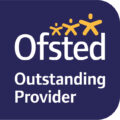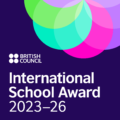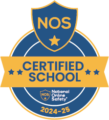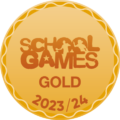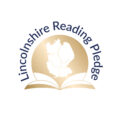Geography
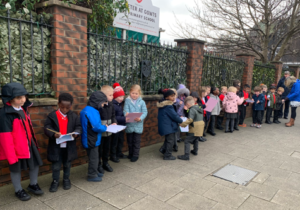 Geography intent statement:
Geography intent statement:
At St Peter at Gowts, our geography curriculum is inspiring and creative unlocking potential in all. Our curriculum seeks to ensure that all pupils flourish through challenge, support and a broad and balanced curriculum rooted in shared values and consistently high expectations while striving for excellence.
St Peter’s geography curriculum is fashioned through our golden threads of values, inspiration, excellence and community.
As Geographers, we are all inspired by the awe and wonder that our natural and human world presents. With the average life expectancy of a child born in Britain in 2012 being 100 years, children of today will be on our planet for longer than ever. Therefore, the teaching of geography takes on an even more significant role in today’s interconnected worldly communities. Our planet provides us with all our needs today, however this may not last because our actions influence its future survival. Geography helps to explain and ignite a fascination for the planet, learning how we are connected through migration, trade and the resources which our planet produces as well as the impact humans have, both positive and negative and the potentially consequences of this. Our cohesively planned ambitious geography curriculum deepens children’s knowledge of the places and people across the world, allowing children to have a recall of key geographical facts and encourage them to explore, ask questions and undertake new experiences both now and in the future, as well as developing transferable skills for their further education and beyond. Through our geography curriculum, we strive to achieve excellence for all.
Our four key threads weave through everything we do at St Peter’s :
Values – Our geography curriculum embraces our school and British values through learning about different communities around the world, showing empathy, understanding and curiosity towards all members of our global community.
Inspirational – Our inspiring geography curriculum is built upon enrichment opportunities which provide opportunities for our children that they would otherwise not experience. Opportunities such as visits around our local area and to places further field such as London, help children to explore the diverse environments in which people live, as well as the human and physical processes that interconnect them.
Excellence- Our cohesively planned geography curriculum and enrichment opportunities allow all children to achieve and continue their ever developing journey as a geographer.
Community – Throughout our geography curriculum, children will develop their understanding of communities around the world and how the interconnected nature of the physical and human world interact causing both positive and negative impacts on communities across the world.
Geography implementation:
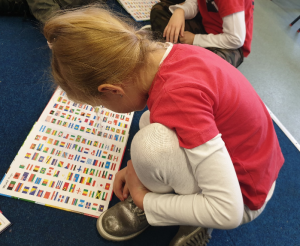
Our Geography curriculum is built around our concepts developed from the National Curriculum and links to our own community and locality. Purposeful cross curricular links are planned to support and strengthen learning where appropriate. Geography in EYFS in underpinned by the Understanding the World objectives as set out in our personalised EYFS Curriculum. Our St Peter’s EYFS Curriculum relates to the objectives as set out in the Early Learning Goals, with clear progression from our littlest of learners (aged 2) to our end of Reception children.
- Geography topics begin with a pre-assessment of current knowledge and skills, from which a learning sequence is constructed.
- Learning sequences are carefully crafted to ensure that all elements from our St Peter’s geography curriculum are taught and learnt – key ‘need to know’ substantive knowledge points are identified in our curriculum, alongside the disciplinary skill concepts that our children will develop to create a well-rounded geographer.
- Our spiral curriculum is progressive in skills and knowledge with key vocabulary and concepts underpinning topics, which is subsequently built upon through the year and between year groups to connect prior, current and future learning.
- Key areas of learning are revisited regularly and links are made within and between topics which supports all children’s learning through spaced repetition and learning flashbacks. This formative assessment is used to inform future lessons in the learning sequence to help children to gather a broad and deep understanding of the topic..
- Progress pauses are planned for mid-way through a topic, where the ‘big question’ will be initially answered with children’s current knowledge and understanding. This will indicate the progress that children are making and how secure their understanding is developing. This information will be used to identify whether any areas already taught need additional coverage either through added teaching or use of flashbacks to secure knowledge.
- All learners are supported through appropriate support and stretch challenges based on assessment for learning, to ensure the needs of all learners are met.
- Enrichment opportunities are used to help support the learning of key geographical areas of the national curriculum, such as local fieldwork studies and trips to the coast to support the understanding of key physical and human features and key topographical features.
- Classroom working walls reflect the learning journey of the class, highlighting key knowledge and skill development as well as specific vocabulary. Working walls may also identify links between previously learnt topics to help make connections between key themes.
- Assessment of skills and knowledge happens on a lesson-by-lesson basis and this information is used to inform future lessons and identify ‘high flyers’ in particular st
 rands of geography, and any children that may require additional support.
rands of geography, and any children that may require additional support. - At the end of a topic, pre-assessments are revisited for children to reflect upon and show off their new learning. The ‘big question’ will be answered once more showing the impact of children’s learning. Learning flashbacks throughout the rest of the year will allow children to revisit their learning, ensuring it remains in the long-term memory ready for further connections to be made.
- To inspire the next generation of geographers, local and wider career opportunities are celebrated and explored throughout school.
Geography impact:
As a year 6 geographer, transitioning to secondary school, we aspire that pupils will have developed a geographical mind of inquiry; an understanding of the world and its human and physical connections; how history has played a part in influencing our planet in terms of trade and migration and the impact that the human race has on the planet.
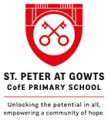
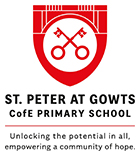
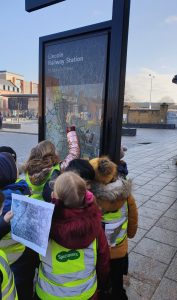 rands of geography, and any children that may require additional support.
rands of geography, and any children that may require additional support.
